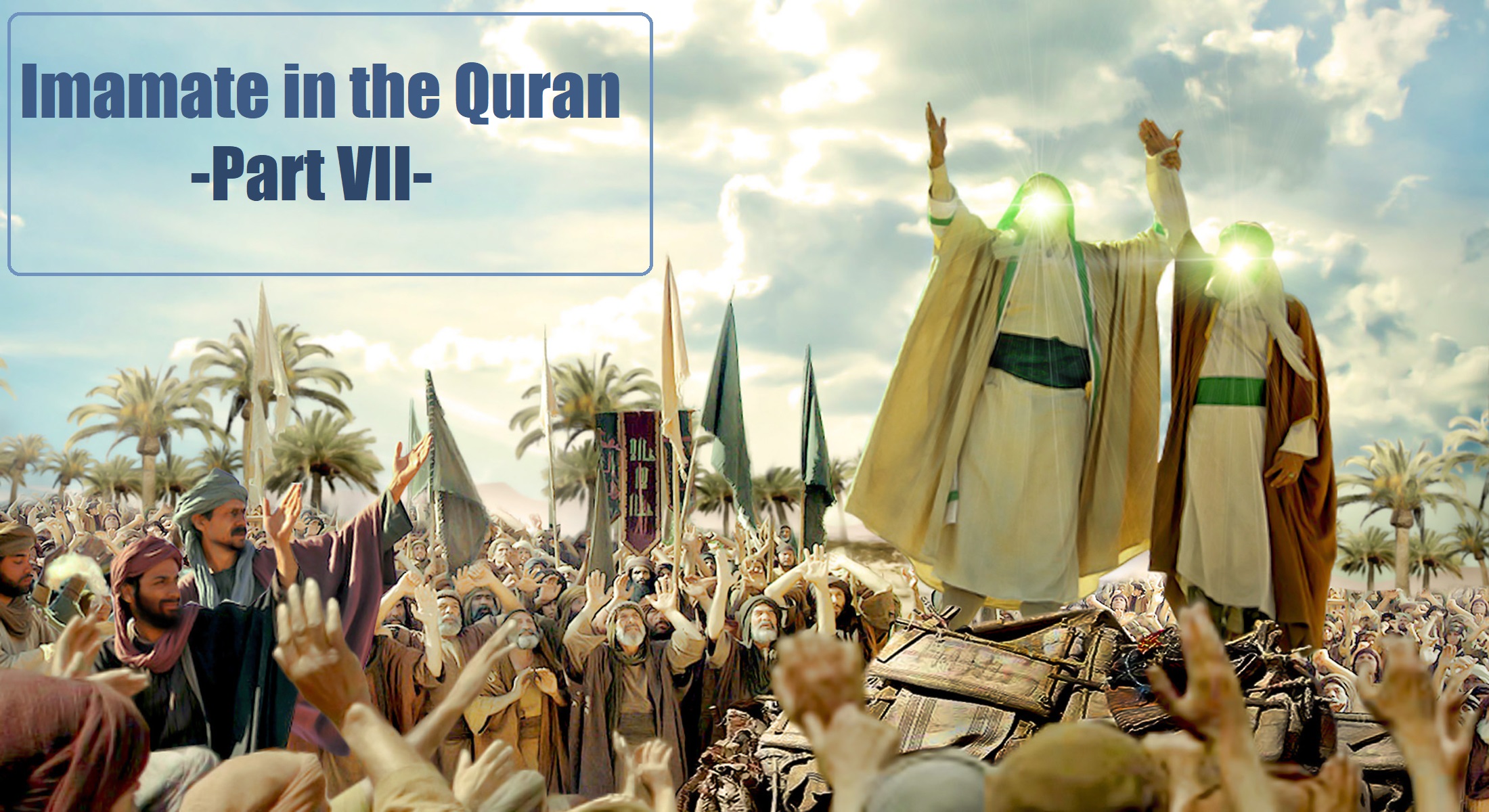Lecture 19 in the Ramadaan series:
UNPACKING THE MOST INTRIGUING QUESTIONS IN THE QURAN
Wednesday 13 May 2020 (20th Night of Ramadaan 1441)
Ahlul Bait (a.s) Masjid, Ottery, Cape Town
Mowlana Syed Aftab Haider
In these nights of the martyrdom of our righteous master, Amir al-Mu’mineen Ali ibn abi Talib (a.s), we are in the service of the Holy Quran and trying to explore and understand the doctrine of Imamate in the Holy Quran itself. In the previous lecture, we presented a list of verses, which has the term Imam in its singular and plural form, and its different meaning and application in the various verses of the Holy Quran.
Based on this, we then established very important conclusions.
RIGHT TO APPOINT AN IMAM IS RESERVED FOR ALMIGHTY ALLAH
In this discussion, we will take the subject forward, again in the light of what we discussed, that Imamate in all these verses, when it refers to human beings and more particularly when it refers to the leadership of good people (meaning in the positive sense) it is always related with the verb “ja’l” which means to place or appoint. “Ja’l” can also mean to make.
Now, if you look at all these verses, which discuss Imamate, and of course, the Imamate of Prophets (a.s), we will find that the word “ja’l” is used. An example is in reference to Nabi Ibrahim (a.s) in verse 124 of Surah Baqarah (chapter 2 of the Holy Quran):
قَالَ إِنِّي جَاعِلُكَ لِلنَّاسِ إِمَامًا ۖ
He said: Surely, I will make you an Imam of men.
Another example is verse 73 of Surah Anbiyaa (chapter 21 of the Holy Quran):
وَجَعَلْنَاهُمْ أَئِمَّةً يَهْدُونَ بِأَمْرِنَا
And We made them Imams who guided (people) by Our command…
We also referenced verse 74 of Surah Furqaan (chapter 25 of the Holy Quran) which explains the supplication of the Ibadur Rahman (Servants of the Most Merciful) to be appointed (ja’l) as leaders of the pious:
وَالَّذِينَ يَقُولُونَ رَبَّنَا هَبْ لَنَا مِنْ أَزْوَاجِنَا وَذُرِّيَّاتِنَا قُرَّةَ أَعْيُنٍ وَاجْعَلْنَا لِلْمُتَّقِينَ إِمَامًا
And those who pray, “Our Lord! Grant unto us wives and offspring who will be the comfort of our eyes, and give us (the grace) to lead the righteous.”
Another reference to “ja’l” being the positive appointment as Imams is in verse 5 of Surah Qasas (chapter 28 of the Holy Quran):
وَنُرِيدُ أَنْ نَمُنَّ عَلَى الَّذِينَ اسْتُضْعِفُوا فِي الْأَرْضِ وَنَجْعَلَهُمْ أَئِمَّةً وَنَجْعَلَهُمُ الْوَارِثِينَ
And We desired to bestow a favor upon those who were deemed weak in the land, and to make them the Imams, and to make them the heirs.
These verses show that the appointment of the Imam is always connected to Almighty Allah (SWT). I am not talking in particular about the Imamate of the Ahlul Bait (a.s). As noted in the previous lecture, our argument is with those who pose this question that there is nothing significant by the name of Imamate established in the Holy Quran.
Our response to those people is that regardless of who is the Imam, we conclude from the previous lecture that Imamate is a status in the Holy Quran for Prophets like Nabi Ibrahim (a.s), with specific reference to the verb “ja’l” which means to appoint, and this verb is connected to Almighty Allah (SWT).
RIGHT TO APPOINT MESSENGERS IS ALSO RESERVED FOR ALMIGHTY ALLAH
Interestingly, the same verb “ja’l” is also used for Nubuwwat and Prophethood. The following excerpt from verse 124 of Surah An’aam (chapter 6 of the Holy Quran) serves as reference:
اللَّهُ أَعْلَمُ حَيْثُ يَجْعَلُ رِسَالَتَهُ ۗ
Allah best knows where He places His message.
Now, what does it really mean if the same word of “ja’l” used for Nubuwwat is the same word used repeatedly for Imamate? All divine Abrahamic faiths who believe in Prophethood agree beyond any doubt that this institution of Nubuwwat is a message from Almighty Allah (SWT) to humanity.
If the application of the verb “ja’l”, as used for Nubuwwat and Risalat, is only in the hands of Almighty Allah (SWT) and nobody has a say in that matter, then the application of the same term “ja’l” in reference to Imamate means that the appointment of the Imam (regardless of who it is) is also in the hands of Almighty Allah (SWT) and not chosen by people or society.
The Imam is therefore not appointed through election or through a consultative process. The consistent application of the verb “ja’l” leads us to conclude that the appointment of the Imam is a divine appointment, directly by Almighty Allah (SWT), in the same way that He appoints the Prophet. This is one very important point to grasp.

